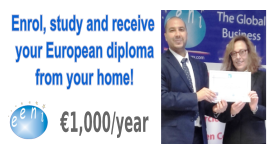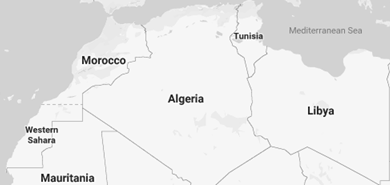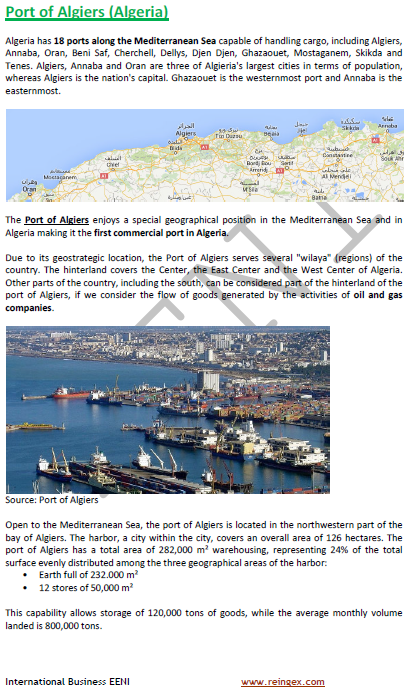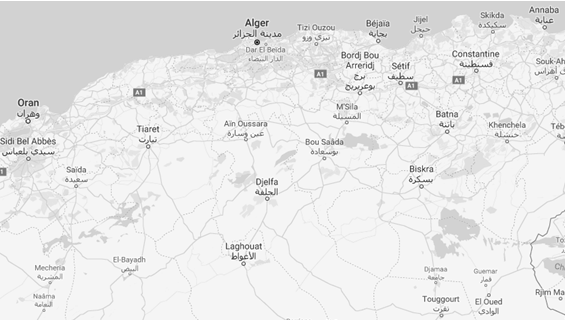Foreign Trade and Transport in Algeria, Algiers, Oran
Algeria (Business) Constantine, Ghardaïa, Annaba, Tlemcen, Ouargla, Sétif

Algeria is a country of the Maghreb (north-west Africa)
- The pillar of the Algerian constitution: «Islam, Arabism and Amazighite»
- Algiers is the Algerian capital and the largest city of Algeria
- The largest Algerian cities are Algiers, Oran, Constantine, Annaba, Ghardaïa, Tlemcen, Ouargla and Sétif
- Other Algerian cities are Batna, Béjaïa, Biskra Tizi Ouzou, Tamanrasset and Mzab
- Algeria is considered as an African Frontier Market
- Algeria is classified as a country with a higher average income (World Bank)
- 1981: transition from a socialist economy to a market economy
- Algeria is not a member of the World Trade Organisation (WTO)
- Oil and gas in Algeria:
- Algeria is the third African oil producer
- Algeria is the leading African gas producer (50% of the African gas production)
- Energy exports are the mainstay of the Algerian economy
- Algeria is the third largest supplier of natural gas to the EU
- The main economic activity in Algeria is agriculture
- Tourism
- Transport and logistics
- The EU is the first trade partner of Algeria
- Algeria share borders with Libya (982 kilometres), Morocco (1.608 kilometres), Niger (170 kilometres), Mali (Kidal, Timbuktu, 1.376 kilometres), Mauritania (463 kilometres), Tunisia (965 kilometres) and the territory of Western Sahara
 Algeria
Algeria


More information: International Trade and Business in Algeria, at EENI Global Business School Website.

- Port of Algiers and Port of Oran
- Cairo-Dakar Transport Corridor
- Algiers-Lagos Transport Corridor (Trans-Saharan)
- Algeria has Rail links with Tunisia via the Ghardimaou-Souk Ahras line

- Algerian population: 42 million inhabitants
- 1990: 26 million
- 2000: 31 million
- 90% of Algerians live in the northern coastal area
- Algerians living in the Sahara desert: 1.5 million
- 28% of Algerians are under 15 years old
- Algerian area: 2,381,741 km²
- Algeria is the second largest African Country and the largest in the Maghreb
- Algeria contains the eastern end of the Saharan Atlas Mountains and the northern part of the Sahara Desert.
- Mount Tahat: 3,003 meters
- Ahaggar Mountains (central Sahara, south of Algeria)
- Algeria is on the Mediterranean coast of North Africa
- Climate of Algeria: Mediterranean in the north and desert in the south of Algeria
- Regions (wilayas) of Algeria

- Algeria is a semi-presidential Republic
- Algeria:
- الجزائر in Arabic
- ⴷⵣⴰⵢⴻⵔ in Tifinagh
- Calling code of Algeria: 213
- Algerian Code top-level domain: .dz
- Independence of Algeria: 1962 (France) (History of Algeria)
- Algerian currency: Algerian dinar
- Ali Haddad (Algerian businessman)
- Issad Rebrab (Businessman, Algeria)

Trade and Business Organisations (Algeria)
- Arab Maghreb Union (AMU)
- Euro-Mediterranean Partnership
- Association Agreement European Union (EU)-Algeria
- Organisation of Petroleum Exporting Countries
- Islamic Development Bank
- Organisation of Islamic Cooperation
- Arab League
- Greater Arab Free-Trade Area
- Global System of Trade Preferences
Algeria is not a member of the WTO
- African Union
- AUDA-NEPAD
- Economic Commission for Africa
- African Development Bank
Algeria is a member of the Francophone University Agency (AUF)
- Francophone digital campus of Algiers
Algerian ethnicities:
The main Algerian ethnic group are Berbers (Amazigh), the indigenous population of Algeria
- Kabyles (Kabylie region east of Algiers, between Algiers and Constantine, farmers)
- Chaoui or Shawiyyah (north-west of Algeria, Aurès mountains)
- Shenwa in the North of Algeria
- Tuaregs (Sahara)
Most Algerians identify with the Arab identity
Berber and modern Arabic are the official languages.
- Algerian Arabic (Darja) is the language used by the majority of Algerians (70% of the population)
- Since 1972, Arabic is used as the language of instruction during the first nine years of schooling.
- 27% of the population speaks Berber
- 5 million people in Algeria speaks Kabyle (Berber branch)
French does not have official status, but it is widely used (government, media)
- French is used in primary school and universities
- Algeria is the second Francophone country in the world
- 16 million Algerians can read and write in French
Religion in Algeria:
Sunni
Islam (99% of the Algerian population), Maliki School


 Tweet
Tweet


